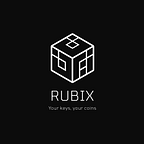Web 3.0 and Blockchain in Gaming: How Are These Technologies Shaping the Future of Gaming?
From playing Super Mario on a 16-bit gaming console to engrossing in hyper-realistic virtual reality games, gamers and the gaming industry has come a long way. However, with great evolution came great challenges like lack of transparency and trust between game developers and players. This is where Web 3.0 and the underlying blockchain technology can come to the rescue. The blockchain has changed the way we interact with our money and data, and the use cases extend far beyond the finance industry. It is now changing the gaming space as well. Web 3.0, and other blockchain-based applications, are changing how millions of gamers play games and experience gaming content. This blog post explores how blockchain technology can be a game-changer in the gaming space and how it could redefine what we know about gaming today.
1. Owning In-Game Digital Assets
One of the important segments of the gaming industry that is responsible for a major part of its revenue is digital assets. These are in-game collectibles that are unique and highly valuable. With blockchain, these can be represented in the form of non-fungible tokens or NFTs that have a unique value and can be easily stored on a wallet. Blockchain-enabled game development also enables the transfer of ownership to players through smart contracts. Thus, blockchain technology will allow players to own their in-game assets and enjoy a seamless experience across various platforms.
2. Restoring Transparency in The Market
In-game assets like special props, characters, environment, etc are popular in modern games where users buy these assets with real-world money to complete even the difficult levels with ease, gain a competitive edge over their opponents, or just to increase the value of their profile. But currently, there is no verifiability or transparency in this process, and developers can change or even remove these in-game tools and assets at their discretion. The developers can also produce an unlimited amount of these assets or rig the market by providing them to certain players. But with blockchain, gamers can tokenize these assets and create a decentralized gaming asset market. The distributed ledger ensures verifiability and also improves the trust factor.
3. Secured Gaming Experience
Today, most gaming platforms are hosted on centralized servers that are a favorite target for hackers. If they can decrypt the encryption, all assets stored on the servers are theirs. Also, the transactions that are made on mobile phones or desktops are always at risk of an attack. Blockchain, in essence, is built to be a highly secure way of storing value. So, storing gaming assets and other game items on a blockchain enhances security.
4. Instant Worldwide Transfers and Exchanges
Gaming is a busy industry, with millions of gamers from all over the world coming together to play their favorite games every day. This would involve transferring and buying digital assets across the globe. Currently, these assets are traded inside the game or on exchanges that charge gamers a fee. This process might also take a couple of days to complete, resulting in the halt of games between players in different countries. But blockchain promises an entirely new way of sending payments around the world- It enables instant and traceable transfer of payments and other digital assets worldwide between two parties without the need for an intermediary like a bank or exchange.
From play-to-win to play-to-earn
Blockchain is one of the most revolutionary technologies in recent history and it has the potential to solve many of the legacy problems of the gaming industry. With Web 3.0 gaining traction across the world and people becoming more familiar with blockchain, the gaming industry is not too far from embracing these innovations and leveraging their benefits.
Developers can bring NFT-powered items and transactions into their games enabling the entry into a new era of gaming that benefits both developers and players alike.
New games allowing users to create their own limited edition NFT assets within the game, to be bought and sold by their peers, may open the door to an entire new class of side income to artists and other creatives. Welcome into the creator economy! P2E economy will revolutionize how people interact with the economies of their favorite games. This creates a more fair and accessible marketplace, enabling gamers around the world to profit from and enjoy the game in whatever way they prefer.
At Rubix Network, we are leading the change in next-gen blockchain technology. We are the proud inventors of the PoH (Proof of Harvest) consensus, a mechanism that reduces carbon emissions by 100%. Our proofchain architecture enables the building of highly scalable, secure, decentralized applications with built-in privacy.
